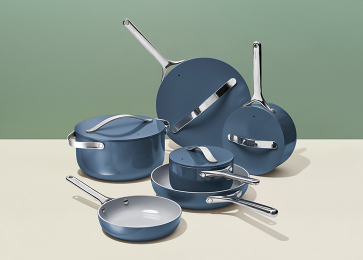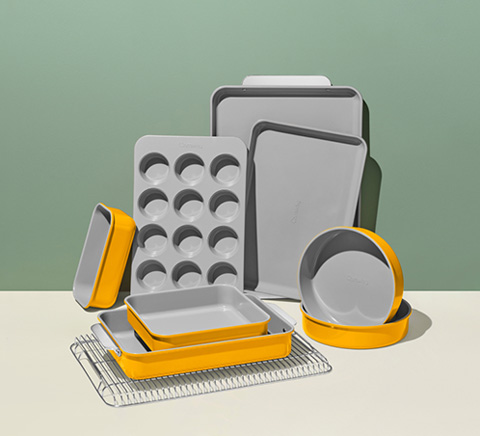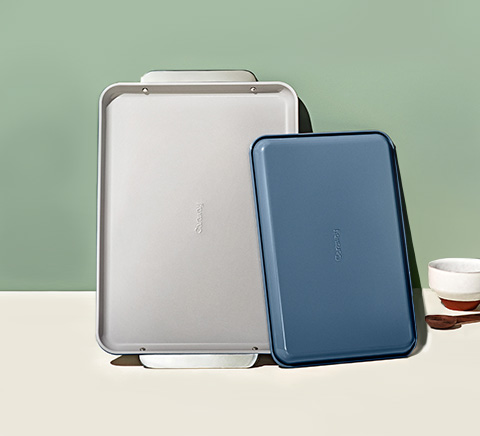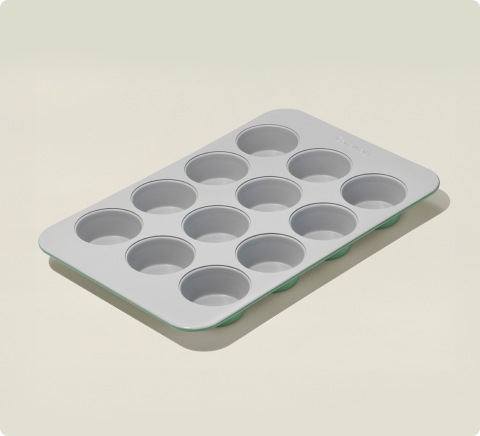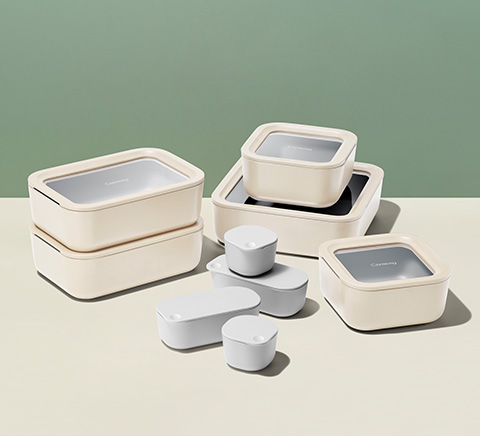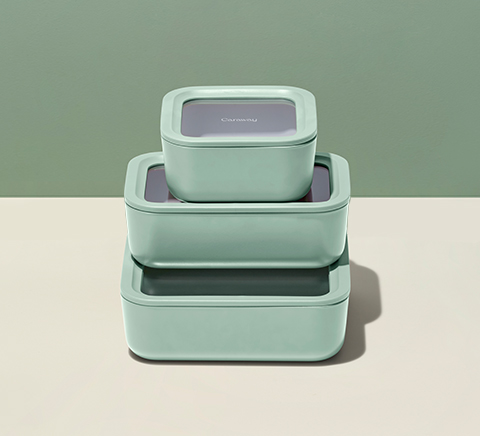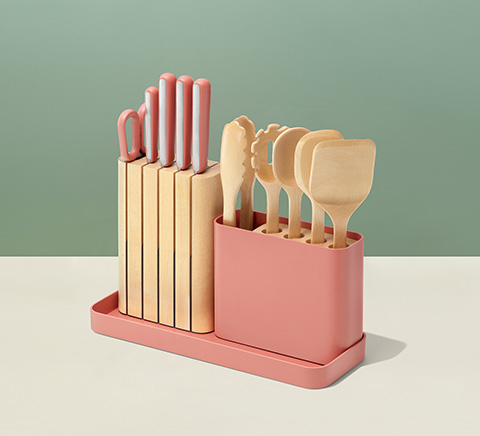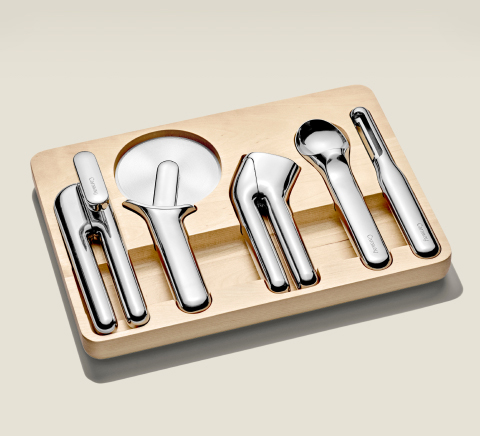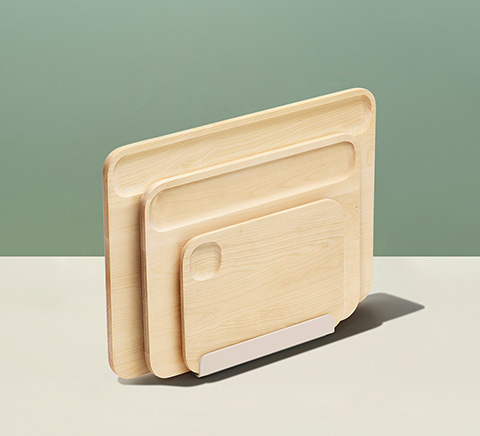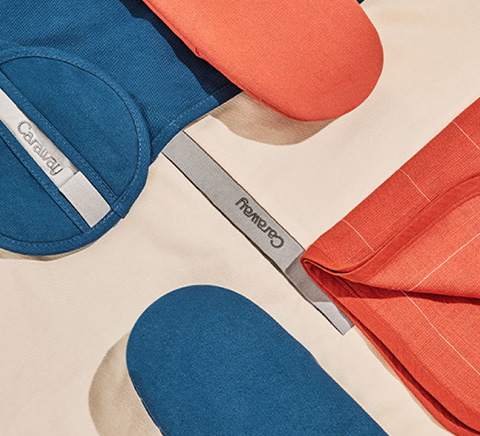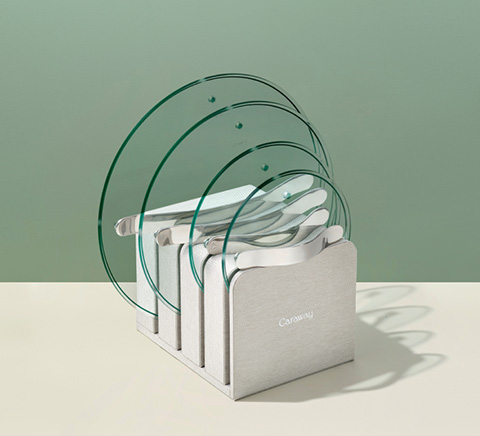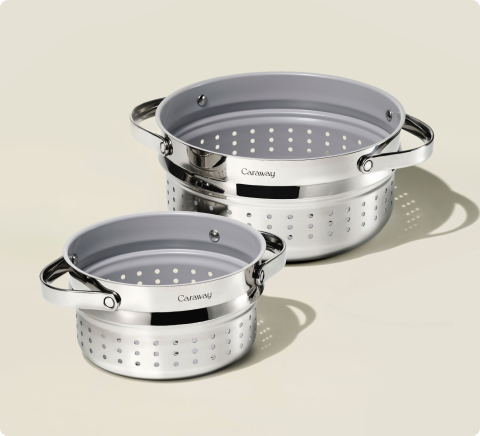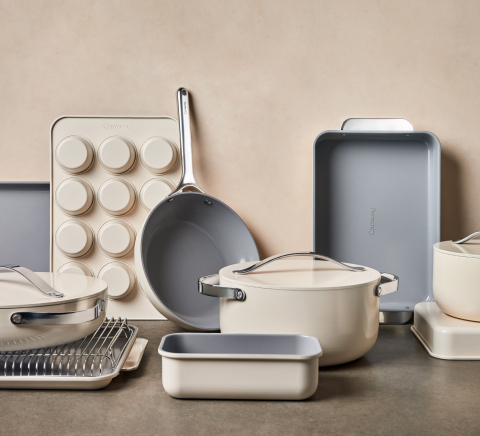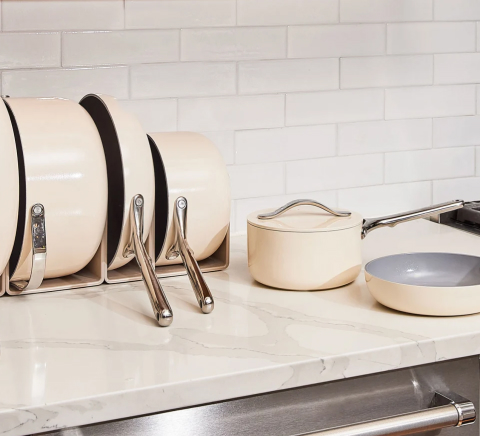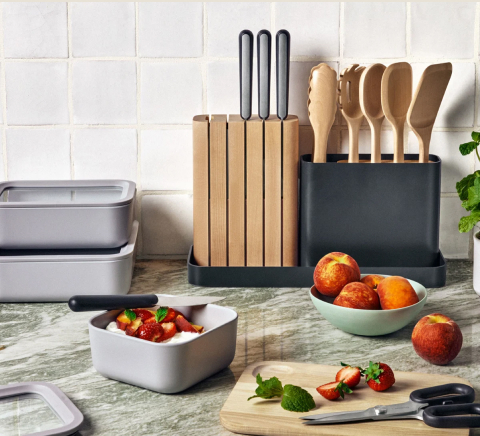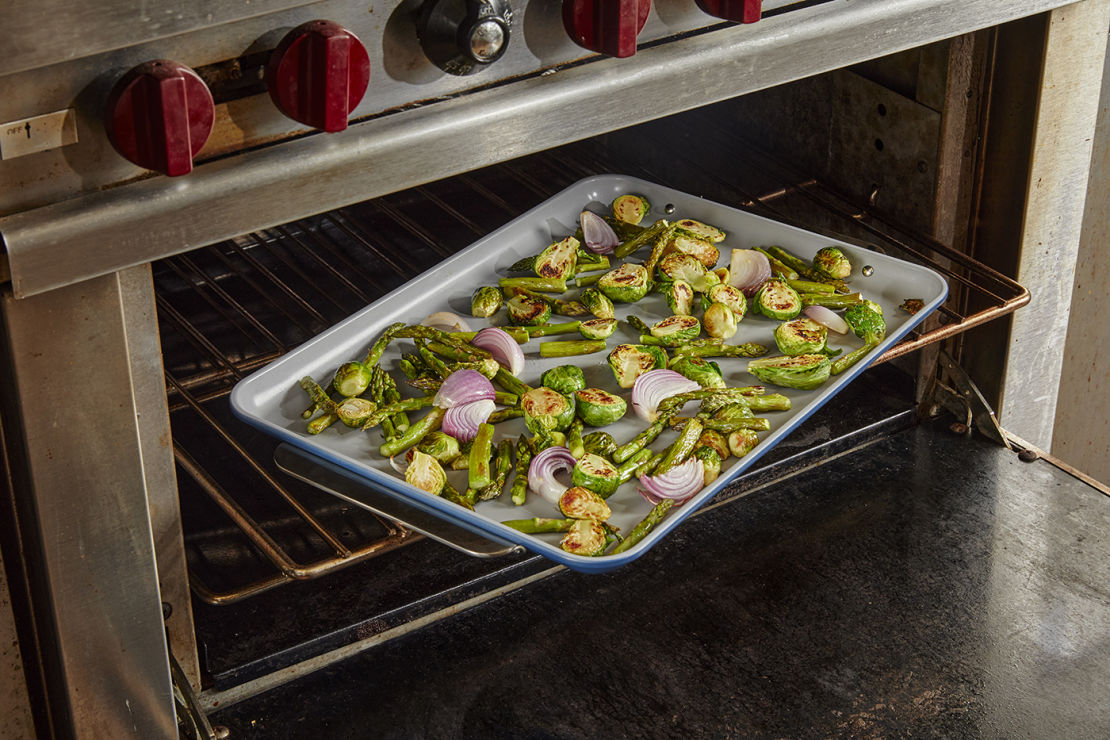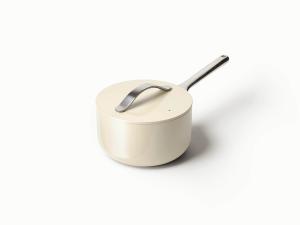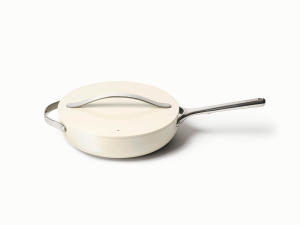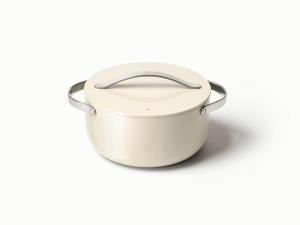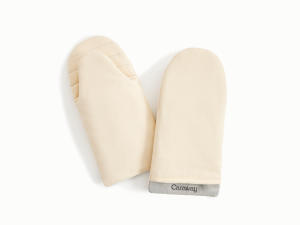What is a baking sheet and how to choose the right one? Read this guide to discover its many uses and how to care and clean them.
A Baking Sheet is one of the most versatile pieces of cookware for any home cook. Whether you’re just beginning your culinary journey or consider yourself a seasoned chef, a Baking Sheet is a must-have tool in any kitchen.
For an overview of its functions, tips for using it, and things to consider when purchasing one, this article will guide you through everything you need to know.
What Is a Baking Sheet?
A Baking Sheet—also referred to as a sheet pan—is one of the most versatile pieces of bakeware that you can own.
These handy kitchen tools come in a rectangular shape, which makes them ideal for use in a standard kitchen oven. Because they are available in a variety of standardized sizes (which we’ll cover in more detail below), you can easily stack them on top of each other and save yourself some valuable kitchen storage space.
Baking Sheets have raised edges to prevent any liquids from escaping them. This makes them perfect for catching the drippings of savory meats and vegetables while keeping your oven squeaky-clean. The raised rims have another advantage: They prevent your ingredients from falling off the Baking Sheet while you toss and flip them in the oven.
Because they come in many sizes, a Baking Sheet can meet all of your cooking needs. Larger Baking Sheets can be used to bake any savory dishes you can think of, such as roasted, baked chicken, and one-pan sheet meals. On the other hand, smaller-sized Baking Sheets are ideal for baking sweet treats, such as sheet cakes, brownies, and cookies.
Last, if you add a wire rack to your Baking Sheet, then it can increase air circulation. This can help you with roasting and cooling your ingredients. Thanks to this increased air flow, you’ll be easily able to roast chicken, rest pan-seared steak, and re-heat anything deep-fried on top.
Types of Baking Sheets
There are several sizes available for Baking Sheets—each with different uses.
Here are the three most popular sizes that this handy kitchen tool is available in:
Full Baking Sheet
A full industrial sheet measures 18x26” inches. This is an essential tool in most restaurants and bakeries, which have ovens big enough to accommodate its size.
However, most home ovens have dimensions that are about 16x25” inches, which can make it difficult to work with an industrial-sized sheet. In addition, not everyone has the storage space for this type of sheet.
For this reason, we’d prefer to stick to the smaller options listed below for your home kitchen use.
Large Baking Sheet
A Large Baking Sheet is exactly half the size of a full sheet pan and measures 18x13” inches. This is the perfect size for making large batches of sweet and savory dishes, such as one-pan dinners, roasted vegetables, and enough bacon to last you a week.
If you’re entertaining dinner guests, cooking for your family, or just like having extra leftovers, this Baking Sheet is a must.
Medium Baking Sheet
The Medium Baking Sheet is 10x15” inches, which makes it perfect if you’re cooking for just one or two people. This Baking Sheet is also ideal for those who are working with limited kitchen space.
Oh, and the best part? You’ll have much less surface area to clean after you’re done cooking. (Not that cleaning is hard with Caraway’s nonstick options.)
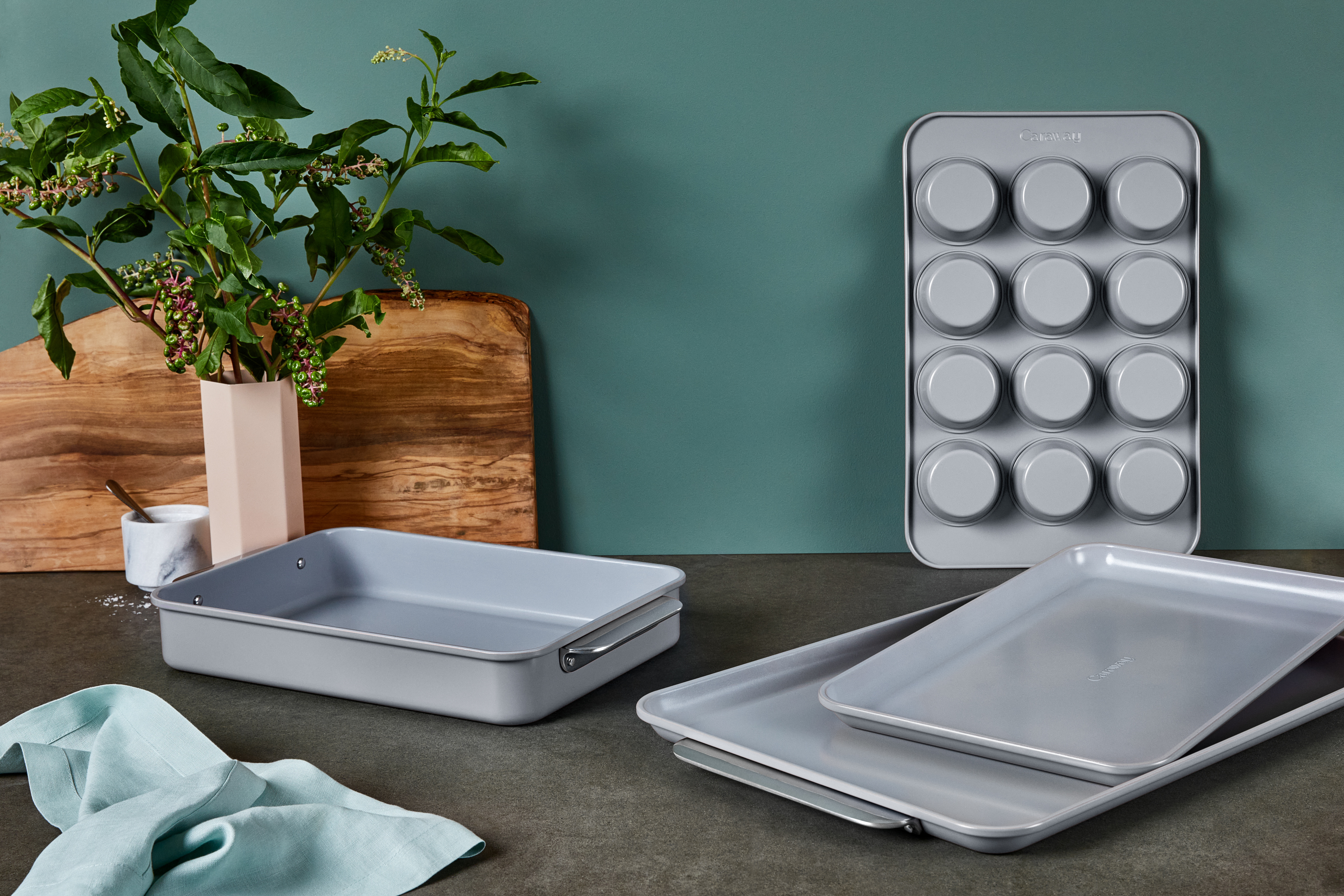
Baking Sheet vs. Baking Pan: What’s the Difference?
To make sure we’re using our kitchen tools correctly, it’s important to clear up some terminology. A Baking Sheet has many similarities to a baking pan; however, there are a few key differences, which means that the two are not interchangeable.
A Baking Sheet is technically a type of baking pan; yet, not all baking pans are considered Baking Sheets.
In general, baking pans tend to come in many different shapes. They are usually much deeper than a Baking Sheet, which helps when you’re working with batter. For this reason, if a recipe you’re working with calls for a Baking Sheet, it cannot be easily substituted with another baking pan.
Consider, for instance, the jelly roll pan. This type of baking pan has very specific uses in baking and cannot be considered a Baking Sheet. In many cases, if a recipe calls for a Baking Sheet, then using a baking pan might not turn out quite as well.
Baking Sheet vs. Cookie Sheet: What’s the Difference?
A cookie sheet is another baking tool that is commonly confused with a Baking Sheet. True to its name, a cookie sheet is ideal for baking cookies. Unlike a Baking Sheet, the cookie sheet has only one raised side. This allows air to circulate freely while wicking away moisture from the cookies baking on top of it.
While you can use a Baking Sheet to make cookies, you can’t use a cookie sheet to make some of the recipes that a Baking Sheet is perfect for. For example, if you try to roast chicken on a cookie sheet, you might find that the meat’s juices drip off into your oven and leave the meat dry as a result. All in all, these two kitchen tools can’t be easily substituted for one another.
How To Choose a Baking Sheet
When it comes to choosing the right Baking Sheet for you, the options are endless. While it seems like a basic kitchen tool, there is actually a lot to consider to choose the one that works for your kitchen needs.
In the first place, the quality of materials can dramatically impact how your recipes turn out. After all, you want to achieve the perfect ratio of crispiness and tenderness when it comes to your meats and vegetables. In addition, baked treats can burn quicker and stick to the Baking Sheet if you’re using the wrong material.
Then, of course, there are design factors such as color, which can actually affect how quickly your recipes cook. Similar to wearing dark colors on a hot day, darker-colored Baking Sheets can absorb more heat and lead to quicker cooking times.
For the above reasons, it’s important to be thoughtful when choosing your next Baking Sheet. Here are the three most important factors to consider to choose the right one for you.
1. Pick the Right Material
The right material will be much easier to work with and make your recipes come out much more delicious.
Here are some of your options when it comes to Baking Sheets:
- Stainless Steel: Stainless steel is an incredibly durable material that won’t stain. This means no more rusting. Another plus? These are pretty easy to clean. Just pop them in the dishwasher and let it do all the cleaning work for you.
- Copper: Copper is well-known for its heat-conducting properties, which means your recipes will bake quickly and evenly. Plus, they look very beautiful. The downside is that copper Baking Sheets are generally hard to clean and aren’t as durable as your other options.
- Glass: Glass is not a great heat conductor. That said, it is great for retaining heat, which means that your recipes will bake slowly and evenly. Using a glass Baking Sheet will allow you to observe your recipes cooking from all sides.
- Silicone: Silicone is a popular material because it’s nonstick, easy to clean, and very inexpensive. That said, we’d steer clear of this material because, when exposed to high heat, it can release chemicals that disrupt your hormones.
- **Ceramic: **Unlike silicone, ceramic is an eco-friendly and non-toxic material. In addition, it is incredibly durable, can withstand extremely high temperatures, and can go from the stovetop directly to the oven. Oh, and it’s super easy to clean!
2. Choose the Appropriate Size
If you’re working with limited kitchen space, then the size of your Baking Sheet is definitely something to consider. In general, our Medium Baking Sheet will comfortably fit into any kitchen space. Because it is smaller, you can invest in several of these handy kitchen tools for cooking different recipes at the same time.
That said, if you’re cooking for a large family (or enjoy batch-repping your meals for the week), then our Large Baking Sheet will be the ideal size for you. If you are worried about your baking essentials fitting into your cabinets, the Complete Caraway Bakeware Set includes organizers that make storage a breeze. These two sleek gray storage units are made to simplify your cabinets (and your baking).
3. Consider a Nonstick Coating
Many Baking Sheets do not have a nonstick coating. As such, you’ll either need to use parchment paper or heavily grease it before cooking.
For healthier cooking, we’d recommend investing in a Baking Sheet with a nonstick coating. This won’t only make sure that your ingredients don’t stick but make it much easier for you to clean after cooking.
The type of nonstick coating that you use is very important. A well-known nonstick coating—Teflon—releases dangerous chemicals when exposed to high heat. Aside from that, it has a tendency to chip, which can lead to pieces of it ending up in your food and your body. While this type of nonstick coating is still available in many home tools, we’d steer clear of it as much as we can.
Instead, we’d consider a non-toxic option such as ceramic. This is a perfectly safe material that won’t release harmful chemicals when exposed to high heat. Ceramic is incredibly durable. You can put it up to any cooking challenge without risking it chipping or flaking off.
Get To Baking!
A Baking Sheet can be used to make virtually anything. Whether you’re one a sheet pan dinner, making a sheet cake, or baking some cookies, a Baking Sheet is a must-have tool in any kitchen.
To choose the perfect Baking Sheet for you, make sure to choose the right material, size, and nonstick coating. The Large and Medium Baking Sheets from Caraway—combined with our collection of bakeware must-haves—will ensure that your recipes come out perfect every time.
Our Sources:
How To Make Bacon in the Oven: The Simplest, Easiest Recipe | Kitchn
12 Worst Hormone-Disrupting Chemicals Revealed | Scientific American
Teflon Is Great for Politicians, but Is It Safe for Regular People? | The New York Times
